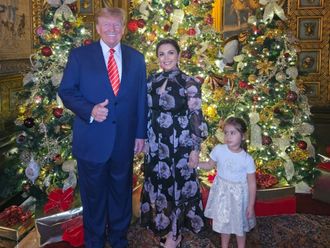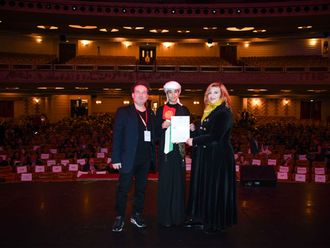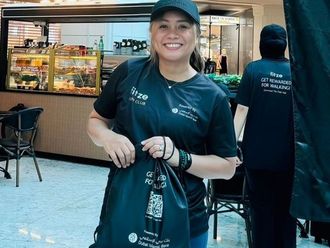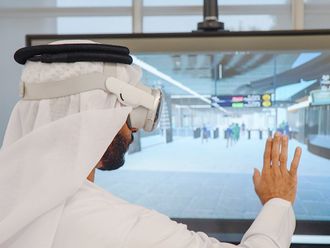The military and the police have arrested 100 suspected Abu Sayyaf members and sympathisers in southern Philippines yesterday after President Gloria Macapagal Arroyo announced a major crackdown to end a prolonged hostage crisis, a senior official said.
Arroyo warned that those arrested could face the death penalty for helping the rebels, who are holding 21 American and Filipino hostages on Basilan island. She said she ordered the crackdown because of "lawlessness" in the southern island of Basilan, where the rebels are hiding.
Arroyo said the order also covered the islands of Sulu and Tawi-tawi, further south of Basilan, and Zamboanga City, which is just a 30-minute boat ride from Basilan. "At midnight last night, I ordered an intensified crackdown against the Abu Sayyaf," she said.
"(The military will) identify and arrest these terrorists, confiscate equipment and tools of terrorists and segregate the active supporters of this terrorist group."
The military's Task Force Comet arrested 23 suspected Abu Sayyaf members during simultaneous raids in Isabela and Malamawi towns in Basilan yesterday, the military said.
Nine others were arrested in Sulu where similar raids were carried out by Comet, the military said, but sources claimed that none of the major Abu Sayyaf leaders was arrested.
"We are detaining all the people in Basilan who are suspected of being Abu Sayyaf members or those who are supporting the terrorist group," said Jesus Dureza, presidential adviser on Mindanao.
He said at least 100 people were arrested after Arroyo's crackdown order and more would be taken into custody. Arroyo's special order covered suspected Abu Sayyaf members and sympathisers who "fed, supplied and financed" the extremist group and provided them with information. However she stressed that authorities would not abuse the special powers.
The President said the campaign would last "until everyone who is on the list (of suspects) is arrested." Earlier, Basilan Governor Wahab Akbar said on television that warrantless arrests were conducted by the national government in Basilan in its bid to capture Abu Sayyaf leaders, members and supporters.
"It would endanger some innocent people," Akbar warned. Justice Secretary Hernando Perez and 10 other prosecutors went to Basilan to oversee the prosecution of the suspects.
Chief state prosecutor Jovencito Zuoo and National Bureau of Investigation director Reynaldo Wycoco were also sent to Basilan for the prosecution of the arrested Abu Sayyaf leaders. Defence Secretary Angelo Reyes, military chief Diomedio Villanueva and national police chief Leandro Mendoza also headed south to help with the crackdown.
Presidential spokesperson Rigoberto Tiglao said the government had not suspended the writ of habeas corpus, to assuage panic and fear in Zamboanga, a port city, in Basilan, Tawi-Tawi, and Sulu to which Arroyo's declaration of lawlessness applied.
The reported police and military raids were only a "major offensive against the Abu Sayyaf including its civilian supporters," Tiglao explained, adding, the Justice Department had issued guidelines "and there is a mechanism for any complaints" to protect the rights of suspected Abu Sayyaf members and supporters arrested by the military and police.
"Everything is being done in the present constitutional framework," said Arroyo as she denied she had declared Martial Law rule in the southern Philippines.
100 Abu Sayyaf men, sympathisers arrested
The military and the police have arrested 100 suspected Abu Sayyaf members and sympathisers in southern Philippines yesterday after President Gloria Macapagal Arroyo announced a major crackdown to end a prolonged hostage crisis, a senior official said.












